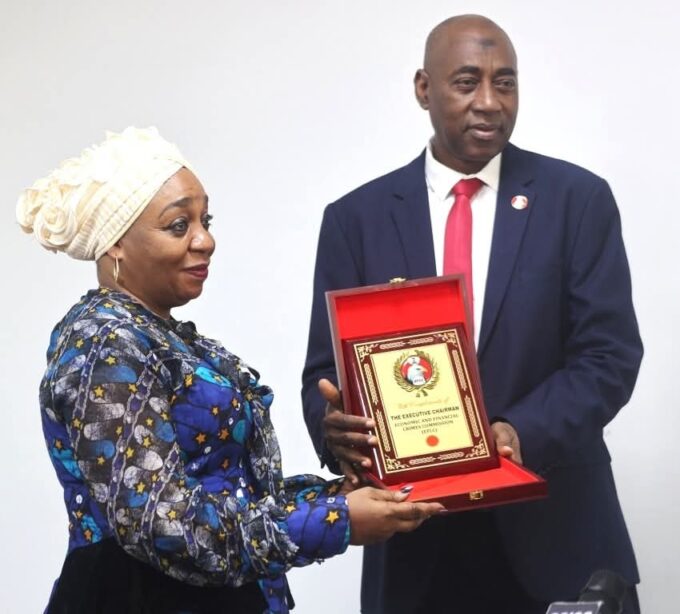L-R: Business Development Manager, AgustoConsulting, Mr. Motunrayo Awonuga; Chairman, NIA, Olusegun Omosehin; Associate Director, AgustoConsulting, Oritsejimi Ogbobine, and Director General/CEO, NIA, Yetunde Ilori; during the maiden NIA “CEOs’ Time out with the Chairman” held in Lagos on Wednesday.
BY NKECHI NAECHE-ESEZOBOR–The Nigerian Insurers Association (NIA), on Wednesday introduced an additional platform for operators to exchange ideals and ask questions on current issues, with CEOs of Insurance firms tagged” NIA Chairman Time Out With CEOs.
The event which is it’s maiden edition will be held quarterly and anchored by the Chairman of the Association.
Speaking at a media briefing with journalist, the NIA Chairman, Mr Segun Omoshein, said the additional platform will be a veritable platform for people to begin to engage with our members.

L-R; Executive Director, Marketing & Business Development, NEM lnsurance Plc, Andrew Ikekhua, and Managing Director/CEO, Unitrust Insurance Co. Ltd, Adedayo Arowojolu, during the maiden NIA “CEOs’ Timeout with the Chairman” held in Lagos on Wednesday.
He added that apart from the annual CEOs retreat and professional forum where they meet, Time out presents unique opportunity for operators to exchange ideals and ask questions on regulatory issues that are of concern to the industry.
The event also featured presentation from team of Agusto Consulting on macroeconomic and examine the operating environment of members.
According to Oritsejimi Ogbobine and Funmilayo Olore of Agusto Consulting Limited, industries will be exposed to severe downside risks owing to macro headwinds.
They added that the two major risks will be FX risks and weaker consumer purchasing power owing to the removal of the fuel subsidy.
According to them the lingering FX crisis will have a material negative impact on several industries particularly industries with high dependence on imports and weak FX earning capacity.
It added that “the most vulnerable industries will be the ones which import finished goods and have little local value add.
“The weakening purchasing power owing to the removal of the petrol subsidy will impact the way consumers purchase products. More consumers will seek down market substitute products in a bid to mitigate the risks of weaker purchasing power.
“The most vulnerable industries to the weaker purchasing power will be products which consumers view as non-essential.
It added that overall, industries will largely resort to price increases which may result in increases in nominal revenue albeit product volumes will contract.














